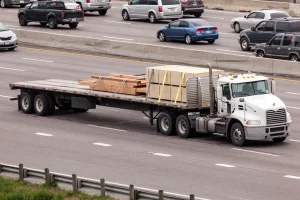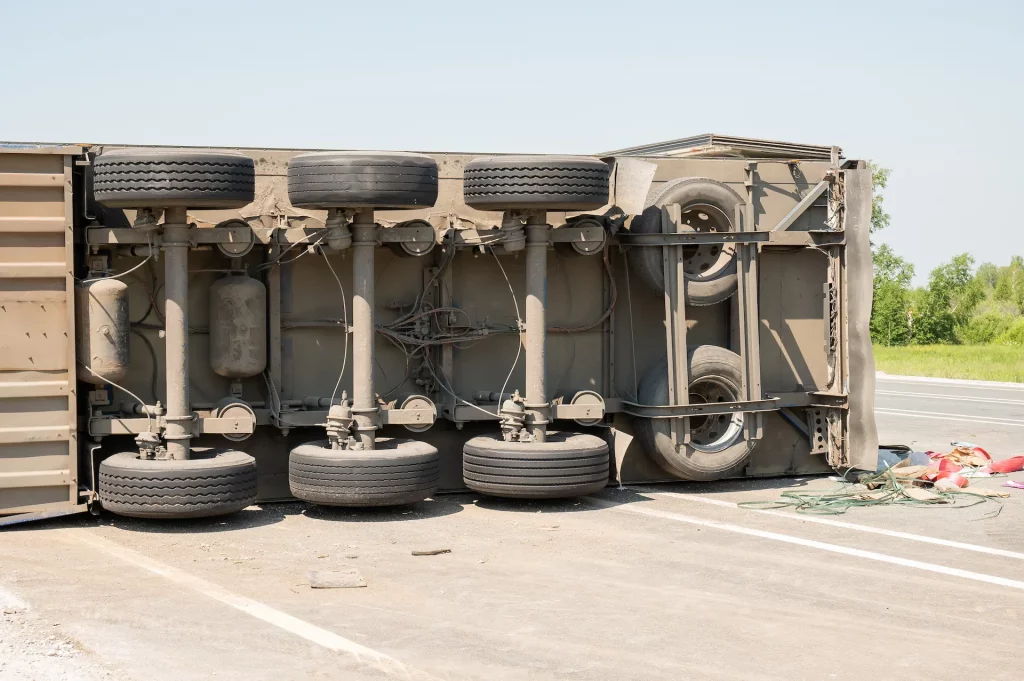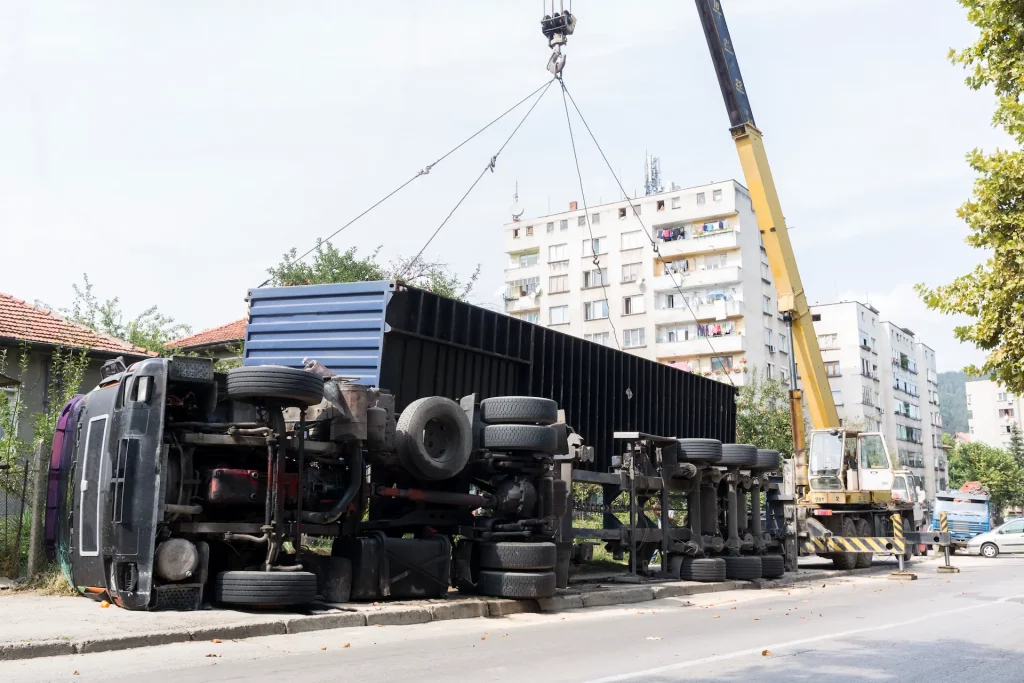Commercial Truck Accident Statistics In Texas

As the largest state in the contiguous United States, Texas is no stranger to the many commercial trucks that travel its highways. Sadly, this also means that accidents involving these large vehicles are relatively common. If you or a loved one has been harmed – suffered a personal injury – or just want to be informed, it’s important to understand the statistics related to commercial truck accidents in the Lone Star State.
In a 2020 report by FMCA, over 400,000 accidents involving large trucks were reported by the police. Alarmingly, 1% of these accidents resulted in fatal injuries.
It’s clear that amidst the undeniable benefits of their presence, these colossal vehicles also pose significant safety concerns.
This article will explore the stark reality of truck accidents on Texas roads, shedding light on the most common injuries suffered, the alarming increase in such incidents, and the underlying causes contributing to their occurrence.
What are the Most Common Injuries Suffered in Truck Accidents?
When commercial trucks are involved in accidents, the injuries sustained by individuals can be severe and life-changing. Among the most common injuries suffered are:
- Spinal injuries, including paralysis
- Neck and Back Injuries
- Head and traumatic brain injuries
- Broken bones
- Crush injuries
- Amputations
- Internal injuries
- Fatalities
2022 Texas Trucking Accident Statistics According to Types
Texas’s vast network of highways and busy roadways accommodate a thriving trucking industry responsible for transporting goods across the state and beyond. However, this bustling commerce has its share of risks, leading to various kinds of trucking accidents. According to reports, Texas accounts for 12.8% of total fatal trucking accidents in the United States.
| Accident type | Percentage of Total Trucking Accidents | Contributing Factors |
| Rear-End Collisions | 29% | Driver fatigue, distracted driver, driving at an unsafe speed, following too closely, defective brakes, weather conditions |
| Jackknife Accidents | 5.5% | Sudden braking, unsafe turns, loss of control, road conditions |
| Rollover Accidents | 28% | Excessive speed, unsafe steering maneuvers, driver fatigue |
| Underride Collisions | Less than 1% | Lack of rear underride guards, unsafe turns, failing to yield the right of way, failing to obey traffic control devices including red lights. |
Insights and Takeaways
The table provides an overview of trucking accidents in Texas based on different types. It highlights the percentage of each accident type concerning the total number of trucking accidents in the state and mentions key contributing factors leading to these incidents. Let’s take a more in-depth look at the data presented:
Rear-End Collisions: Rear-end collisions dominate trucking accidents in Texas, accounting for a significant percentage of total incidents. Driver-related factors, such as fatigue and distracted driving, play a major role in these accidents. Truck drivers driving at an unsafe speed and failing to pay attention to the road ahead are also frequent causes. Adverse weather conditions can also exacerbate the risk of rear-end collisions, emphasizing the need for improved driver awareness and road safety measures during inclement weather.
Jackknife Accidents: While Jackknife accidents comprise a smaller portion of total trucking accidents, they remain a serious concern due to their potential for severe consequences. Sudden braking and a loss of control are common triggers for these accidents.
Rollover Accidents: Rollover accidents remain a serious concern due to their potential for severe consequences. The data suggests that excessive speed and sudden steering maneuvers contribute to these accidents. Implementing speed control measures and enhancing road infrastructure on critical stretches can aid in reducing rollover incidents.
Underride Collisions: Though comparatively less frequent, underride collisions are still significant concerns for road safety. The primary factors leading to these accidents are a lack of rear underride guards and driver negligence.

What are the Factors Contributing to Trucking Accidents?
Understanding the various factors contributing to trucking accidents is paramount in developing effective strategies to enhance road safety and prevent future incidents.
Driver-related Causes
Fatigue: Driver fatigue is a significant concern in the trucking industry, as long hours on the road and demanding schedules can lead to drowsy driving. According to a Federal Motor Carrier Safety Administration (FMCSA) study, driver fatigue accounts for approximately 13% of trucking accidents in the United States.
Distracted Driving: Distractions such as texting, phone calls, or other activities that divert a driver’s attention from the road, increase the risk of accidents. In fact, FMCSA’s research indicates that distracted driving contributes to 32% of trucking accidents.
Impairment: Driving under the influence of drugs or alcohol severely threatens road safety. The National Highway Traffic Safety Administration (NHTSA) estimates that impaired driving is a factor in nearly 4% of trucking accidents in the U.S.
Truck-related Causes
Maintenance Issues: Inadequate maintenance of commercial trucks can lead to mechanical failures and breakdowns, which can cause accidents. Statistics from the Large Truck Crash Causation Study (LTCCS) show that about 10% of trucking accidents can be attributed to maintenance-related issues.
Brake Failures: Malfunctioning or poorly maintained brakes can significantly impair a truck driver’s ability to stop or slow down, leading to accidents. The LTCCS data indicates that brake failures contribute to approximately 8% of trucking accidents.
Road and Environmental Factors
Road Conditions: Poor road conditions, including potholes, uneven surfaces, and road debris, can increase the likelihood of trucking accidents. Additionally, wet, muddy, and sandy roads can lead to accidents as well. According to FMCSA, approximately 18% of truck accidents in 2019 took place when road surface conditions were not dry.
Weather: Adverse weather conditions, such as rain, snow, or fog, can create hazardous driving conditions, reducing visibility and traction. The FMCSA’s analysis determined that in 2019, approximately 35% of truck accidents took place when weather conditions were not clear. This includes fog, rain, snow, ice, and other adverse weather conditions.
Other Causes
Speeding: Driving at excessive speeds significantly raises the risk of accidents. According to studies, excessive speed accounted for almost 8% of trucking accidents in 2020.
Inadequate Training: Insufficient training for truck drivers can lead to poor decision-making and handling of challenging situations. Data from the FMCSA indicates that inadequate training contributes to approximately 6% of trucking accidents.

What are the Effects of Truck Accidents?
The effects of commercial truck accidents in Texas extend far beyond the immediate collision site, profoundly impacting various aspects of individuals’ lives, society, and the economy. If you or someone you know has been in a truck accident, you may already be familiar with the following:
Physical Impacts
It’s no secret that the physical effects associated with truck accidents are often more severe than those linked to accidents involving smaller vehicles. In fact, many survivors of truck accidents report experiencing instant or long-term physical injuries, such as:
- Back and neck injuries
- Crush injuries
- Fractured bones bones
- Head injuries, including traumatic brain injury (TBI)
- Spinal cord injuries, which can lead to partial or total paralysis
- Internal injuries, such as damaged organs or internal bleeding
Sadly, these physical injuries can lead to lifelong disabilities and complications, requiring ongoing medical care and adjustments to daily routines.
Emotional and Psychological Impacts
Just as important as the physical aftermath of a truck accident is the emotional and psychological toll it can take. Crash survivors, as well as their loved ones, may have to confront the following mental health challenges:
- Post-traumatic stress disorder (PTSD)
- Anxiety and depression
- Mental anguish
- Fear of vehicles or traveling in general
- Difficulty sleeping
- Loss of enjoyment in previously enjoyable activities
- Strained relationships
It is crucial to seek therapy or counseling to address these emotional and psychological effects and ensure long-term healing.
Financial Impacts
The financial consequences of a truck accident can be a significant burden for those involved, including their families. Medical expenses, rehabilitation costs, and property damage can quickly add up. Additionally, temporary or permanent disability may reduce an individual’s capacity to work, making it tough to cover regular expenses. This unfortunate situation may lead to:
- Accumulating extensive medical bills
- Loss of income and earning potential
- Cost of long-term care
- Modification of home or vehicle to accommodate disabilities
The financial implications of a truck accident underscore the importance of seeking full compensation under the law and exploring all available legal options.
The Ripple Effect on Loved Ones
Truck accidents don’t just affect the person who is physically harmed–they impact the families as well. Loved ones may find themselves taking on the role of caregivers, providing physical, emotional, and financial support to those injured in collisions. This added responsibility can lead to:
- Increased stress
- A change in family dynamics
- Burden on caregivers
- Altered family roles
- Financial pressure on the whole family
All these factors emphasize the importance of preserving a strong support system and seeking both legal and emotional help after a truck accident.
Loss of Life
The sheer size and weight of commercial trucks can make them particularly deadly in accidents. In the tragic event of a truck collision, passengers in smaller vehicles are much more likely to suffer severe injuries or even death: 5,276 people were killed in truck accidents in 2021.
The life-altering implications these accidents can have for surviving family members are profound, as they often cope with the emotional, physical, and financial hardships that accompany such loss.
Property Damage
The magnitude of a truck accident often results in extensive property damage, particularly when the involved vehicle is a commercial truck carrying hazardous materials. Fuel spills, cargo loss, and destruction of public infrastructure are just a few potential consequences. The cost of repairing or replacing damaged property can be significant for both local authorities and private property owners.
Strain on Emergency Services
The size and complexity of a truck accident often require a larger, more intensive response from emergency services than a typical motor vehicle accident would. Firefighters, paramedics, and law enforcement officers must all mobilize to manage the scene, care for those involved, and ensure the safety of all involved. This response can create a strain on local resources, especially in smaller communities where emergency services may be limited.
Indirect Impact on Businesses
A truck accident can also have a cascading effect on businesses, particularly if they rely on a specific route and schedule for transporting goods. When a major accident involving a commercial truck occurs, the resulting traffic delays and road closures can affect the entire supply chain. Deliveries are postponed, which then impacts the businesses that rely upon them. In turn, this can lead to reduced revenue for those companies and potentially even job losses.
As you can see, the ripple effect of truck accidents underscores the importance of preventing them through comprehensive safety measures, responsible driving practices, and increased public awareness.

How Do Truck Accident Statistics Compare Against Other Vehicular Accidents?
While trucking accidents garner considerable attention due to their potential for severe consequences, contextualizing them within the broader landscape of vehicular accidents can put everything into perspective:
Proportion of Total Accidents: Trucking accidents account for 11% of all vehicular accidents in 2021.
Fatalities and Injuries: Trucking accidents, due to the size and weight of commercial vehicles, tend to result in higher fatalities and injury rates than accidents involving smaller vehicles.
Have you Been Involved In a Truck Accident? Contact The Callahan Law Firm
If you have been involved in a truck accident, consider hiring a truck accident lawyer in Houston and Pasadena as soon as possible. Our attorneys at The Callahan Law Firm can evaluate your case, guide you through the legal process, and provide the legal representation necessary to maximize your recovery under the law.
Are you ready to make an informed decision and work with an experienced truck accident lawyer? Contact us today, and we’ll work to make sure your rights are protected and that you receive full justice for the injuries and harm caused.
FAQs: Frequently Asked Questions
Q: How many accidents happen in Houston?
A: Houston, one of the most populated cities in Texas, records an extraordinary number of motor vehicle accidents each year. In 2021, the city recorded over 60,000 accidents. The number of motor vehicle accidents in Houston varies yearly based on population growth, the economy, and enforcement measures.
Q: What is the accident rate in Texas?
A: The accident rate in Texas is calculated based on the total number of accidents per 100,000 people, or 100 million vehicle miles traveled (VMT). In 2022, the state recorded 1.58 deaths per 100 million vehicle miles traveled, a 1.99% decrease from 2021.
Q: What is the most common factor for crashes in Texas?
A: Driver-related factors, such as speeding, distracted driving, and driving under the influence, have consistently been identified as some of the most common factors contributing to crashes in Texas.
Q: What is the truck accident rate in the U.S.?
A: The truck accident rate in the United States is the number of accidents involving commercial trucks per 100,000 registered trucks or per million miles traveled by commercial trucks. In 2020, over 4,000 people were involved in a fatal truck accident in the United States. The truck accident rate can vary by state and region and is influenced by driver behavior, road conditions, and safety regulations.

Michael S Callahan is an attorney and founder of The Callahan Law Firm. He focuses his practice on representing individuals and families in personal injury cases involving motor vehicle and truck accidents, workplace accidents and defective products. With over 25 years of experience, he is dedicated to fighting on behalf of people whose lives have been forever altered by the negligence and carelessness of corporations and individuals. Originally trained as a mechanical engineer, Michael has been practicing law and fighting for justice for those who need it most since 1994. He is board-certified in Personal Injury Trial Law by the Texas Board of Legal Specialization and a member of various esteemed legal associations. Outside of work, Michael enjoys spending quality time with his family, outdoor activities, and continually striving to improve as a trial lawyer and human being.











